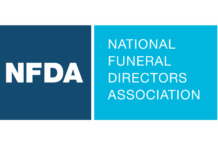By Leader Contributor Glenn H. Gould III, CEO of MKJ Marketing
There is a popular summer reading book entitled, “All I Really Need to Know I Learned in Kindergarten.” The premise is simple enough; the book relates the fundamentals for human interaction by relating them to playground experiences.
Although this is not an endorsement for the book, it effectively demonstrates how fundamentally simple life can be when we don’t complicate it with ancillary priorities. We typically recognize the big decisions for what they are; we know when the roof needs replacing — not because it is actively leaking but because we know that it soon will. Most of us know what we are trying to accomplish in raising children, managing household finances, and running our businesses; major decisions are based upon an underlying philosophy and long-term objectives.
We know when an employee needs disciplining, when we should reserve cash, or when we should make a large investment in our businesses. The problem isn’t that we don’t know what to do; the problem often is having the discipline and commitment to follow our instincts. Instead, we often ignore our best instincts and move in the opposite direction even when we know it’s the wrong thing to do.
Many marginal small businesses ultimately succeed — not because they have a great location or special insight into their business that competitors lacked or any other tangible advantage — except that they are able to maintain discipline in decision-making over a long period of time. As opposed to talking themselves out of doing the right thing, they recognize what needs to be done and execute.
Sometimes we opt for the more expeditious or the easier quick fix. Hundreds and hundreds of funeral home owners have told me they know the contributions they make to local groups do nothing for their business and that they really can’t afford to give money away, yet most funeral homes are an easy touch for fundraisers. It is easier to write the check than it is to say no.
Because humans are fallible, the idiom “plan the work and work the plan” remains relevant and pertinent. We tend to be candid with ourselves when “planning the work.” Because “planning” is a cerebral process, it’s possible to isolate ourselves from our weaknesses and inefficiencies. Plans look great on paper because they reflect what we know we should do.
Execution can be difficult because “working the plan” demands discipline; sometimes the plan requires us to be leaders, and leading can be hard.
Maintaining Discipline in Advertising
Much of the advertising industry is based upon impulse buying. Radio stations, novelty companies, calendar printers, charities, etc., all package their presentations to get you to make an impulsive decision to incorporate whatever it is they are selling into your ad budget. Because most small business owners and managers are more inclined to meet with a salesperson than they are to create an advertising plan, the salesperson has the upper hand. Because there is no advertising plan in place, anything the salesperson proposes makes sense; the logic runs something like this: “If I’m not doing anything else, doing something must be better.”
The reality is most funeral home budgets cannot accommodate impulse spending. Advertising decisions made without a plan is how funeral homes end up with storage rooms full of stuff they can’t remember why they bought and have no idea how to make it productive. So, it sits there collecting dust until someone decides to throw it away to make room for something else.
Advertising companies, including MKJ Marketing, offer package prices for standard newspaper advertisements, such as 10 ads for $850. The reality is very few funeral homes need 10 newspaper ads. Newspaper media has become so expensive, and most funeral homes could not afford the media to run 10 newspaper ads an adequate number of times for the consumer to learn the message of each. When a funeral home purchases a large number of advertisements, they are signaling that they have no advertising priorities and no plan. They don’t know why people use them and why they don’t.
They have no idea what they are attempting to communicate to their community, as such any advertisement is a good advertisement. And while the advertisements themselves are probably very attractive, well designed with good copy, the real question is whether this advertisement makes a constructive comment about your business.
Every business model should have a unique selling proposition — a reason why customers should select them instead of a competitor. Positioning a business can be complicated, and it can take a long time to accomplish — even decades. Nonetheless, positioning is the most productive endeavor a business owner can undertake. Understanding how your business is better and different from the competition allows you to frame the argument as to why your business should be preferred over others.
Convenience, pricing, special services, serving all faiths (or serving just one ethnic group), reception rooms, and horse-drawn hearses are all factors funeral homes use to promote their competitive edge. After identifying their advantages (their unique selling proposition), execution becomes a relatively simple matter of running a few advertisements that effectively explain the competitive advantage to the public and how that advantage better serves the consumer. The tough part is maintaining discipline. Sticking with a message long enough for the advertisements to work is where most small businesses fail.
A good example is the better cremation societies nationally. The typical, successful minimal service cremation companies have been in business many years, communicating the same message and never straying from their core business. Many, many companies have attempted to enter this business only to fail because they did not maintain disciplined advertising and execution. Some try to expand their services to raise their average sale, while others stopped advertising long before the community learned their message.
Maintaining Discipline in the Arrangement Room
Funeral service is the only business where managers and owners do not have (or take) the opportunity to observe associates in the execution of their job. Arrangers enter a room with families and close the door. Everyone assumes they perform in a manner consistent with the firm’s objectives and best interests.
Cemeteries have this same challenge with pre-need salespeople; but over 50 years, they have created a means of monitoring the salespersons’ behavior without observing them. Most cemeteries have a sales presentation they have refined over an extended period of time. They know when their salespeople waver from the script because their close rates will increase or decline compared to the other salespeople using the same presentation tools and the same script. Having an established presentation system is the key to consistent performance.
Certainly, making pre-need cemetery arrangements differs from at-need funeral arrangements, but when it comes to making cremation arrangements, funeral directors working in the same building will often have radically disparate sales averages. Why? Because management has not enforced a disciplined approach for making cremation arrangements, each arranger enters the room with a family with their own agenda. Maybe they attempt to effectively communicate with the family or maybe they simply write off the family because they choose not to have a traditional funeral followed by burial.
Some licensed arrangers will argue that they should not be restrained from serving the family as they see best. This luxury was affordable when the cremation rate was 5% or 10%, but when the cremation rate approaches 20%, 30%, and even 50%, funeral businesses cannot afford to have arrangers operating as the “Lone Arranger” with their own priorities and systems. At some point, management must exert itself and establish expectations. However, expectations are illegitimate without systems. Management must provide the tools necessary to accomplish specific objectives.
Funeral arrangement, particularly cremation arrangement, demands disciplined use of presentation tools to help the consumer understand the term “personalization.” Telling a family that we are going to provide a “personalized” funeral makes absolutely no sense to the average family. They expect a personalized funeral; that’s why they collectively decided to set aside significant funds for a funeral or memorial. Imagine a waitress in a diner telling you she was going to serve you a “personalized lunch.” You expected a personalized lunch when you decided to go out to eat; this expectation was reinforced when she gave you a menu. Why would a family anticipating a funeral bill from $4,000 to $10,000 anticipate anything less than they would from the neighborhood diner?
Packaging services and creating presentation tools to facilitate communication of these packages is a means of maintaining discipline. Similarly, a plaque located in arrangement rooms stating payment terms assists arrangers in maintaining discipline relative to payment policies. Most families walk into a funeral home with no idea what funeral home payment terms are. Not having a policy or not communicating that policy is a failure of management to provide arrangers the tools they need to maintain discipline.
Maintaining Discipline in Acquisitions
Acquisition of funeral homes is probably the most blatant and expensive failure to maintain discipline. Funeral service is entering another round of consolidation, and many family-operated businesses will have multiple opportunities to acquire a competitor or funeral businesses in neighboring communities. Simply put, the margins in funeral service have declined so much many marginal firms will attempt to sell their business. Some will represent good opportunities; others will represent traps that can burden a family business for generations. Making good acquisition decisions is a matter of discipline.
Too often, individuals jump at an acquisition opportunity with too much enthusiasm. They convince themselves that they can restore the firm to its previous volume within a matter of months. Turning around a mismanaged firm takes years to accomplish; there is no shortcut, and it often begins with a major remodeling costing hundreds of thousands of dollars just to get started. This is particularly true when dealing with national corporations. The prospective buyers of these firms often have an exaggerated perspective of the value of these facilities because they have an exaggerated perception of the value of their own firm. They somehow convince themselves that they are getting a “good deal.” Be realistic: The corporate deal makers have bought and sold thousands of funeral businesses, and they know what a funeral business is worth. It is very unlikely a family business owner will get the better of a skilled, professional negotiator with years of practical experience.
Maintain discipline and establish your strategic priorities in advance so that you’ll have criteria upon which to base your acquisition decisions. Don’t jump too quickly; there are fewer sincere buyers than you might imagine. Remember: The success of an acquisition is determined before the deal is made — not afterward. If you don’t know how you will make a new facility successful before you own it, the chances of it becoming a success afterward are greatly diminished.
Conclusion
Every licensed funeral director learned to maintain a disciplined approach when embalming when they were in mort school. A skilled embalmer doesn’t change procedures with every case; instead, they approach each case systematically. Equipment and tools are stored in an organized manner and are sterilized after each use.
Transferring this same discipline to matters of management would make for more productive marketing and more profitable funeral businesses.








